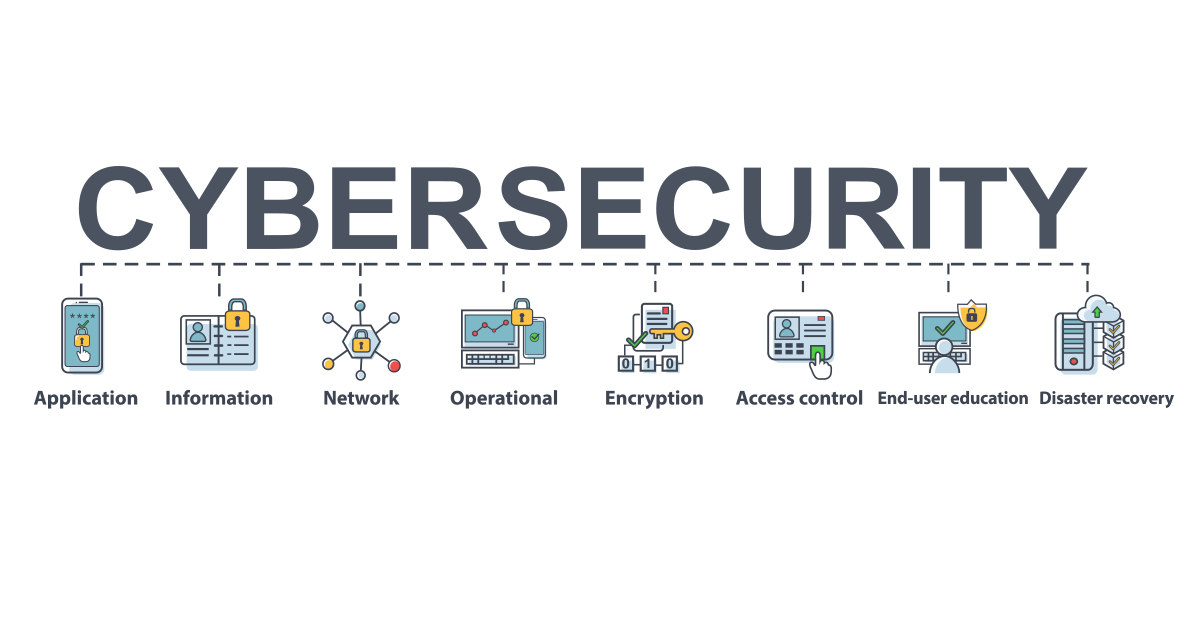cybersecurity online school for Dummies
cybersecurity online school for Dummies
Blog Article

1. Data violations: Fintech companies deal with sensitive financial details, making them a prime target for cybercriminals. A solitary information breach can jeopardize millions of users' personal and economic information, causing serious repercussions.
2. Repayment scams: Scammers utilize sophisticated methods to control settlement systems, creating economic losses for both customers and services. Stopping payment fraud calls for innovative safety steps and constant surveillance.
3. Conformity: Fintech companies have to abide by different financial laws, such as GDPR, PCI-DSS, and AML/KYC. Making certain compliance can be a complex and taxing process, but failing to do so can lead to hefty penalties and reputational damage.
4. Insufficient safety steps: Fintech companies frequently focus on speed and innovation over protection, leading to poor security against cyber dangers. This can expose customers' information and monetary information to considerable risks.
Fintech software program growth should address these cybersecurity tests to safeguard customers' rate of interests and keep public count on. }
The fintech industry is changing the way we take care of money, however with innovation comes new challenges, specifically in cybersecurity. Such obstacles question the integrity and protection of financial systems and effect your photo as a credible fintech service provider https://s-pro.io/fintech.
In this article, we're discovering the 4 cybersecurity threats faced by the fintech market and suggest methods on just how to minimize them.
"Cybersecurity Threats Evolve"
Malware assault is a catch-all term for any type of kind of destructive software application created to harm a computer system or web server of a individual. Cyberattackers develop and spread out malware software application for different reasons. The most frequent purpose is to steal personal, economic, or organization details.
Ransomware kind of malware attacks continues to be one of the most prominent type of cyber hazards. In 2023, 72% of services were hit by a ransomware attack, according to Statista's record. Exactly how do you keep shielded? Right here are some of the methods:
Ensure to routinely upgrade your computer and software program, utilize a reputable anti-virus program, and avoid clicking on web links from unknown resources.
On the one hand, the rapid fostering of emerging innovations such as blockchain, expert system (AI), and IoT (Internet of Points) opens up new perspectives to fintech. On the other hand, it brings new safety concerns to the table. For example, AI-powered systems can be made use of to spot susceptabilities in networks and systems. IoT attacks target Web of Points systems-- objects embedded with software application that allows them to collect and keep information. While the risk of IoT assaults can be decreased by choosing protected tools, AI-powered strikes demand a much more intricate approach:
Execute a multi-faceted safety technique;
Supply routine training for workers on safety and security best practices;
Utilize advanced AI-powered protection remedies to boost protection against insider threats.
An expert hazard is the one originating from within a fintech ( repayment systems, neobanks, etc) organization. Customarily, the " resources" of danger are workers or specialists who have licensed access to sensitive information or systems. Expert risks come in two kinds-- deliberate-- when the sensitive data is swiped and marketed intentionally and inadvertently-- unintentional direct exposure of exclusive info that causes injury to an organization. Some of the most effective techniques to mitigate expert risks include the following:
audit of your group's access opportunities;
execution of password security plans;
education of your group on how not to end up being the targets of phishing.
Third-Party Vendors
Numerous fintech business rely upon third-party providers for services like repayment handling or information storage space. cybersecurity engineer salary Such reliance on external vendors in fintech software application advancement can present numerous avenues for cyberattacks. Fintech companies should carry out complete due persistance on third-party suppliers they accept, consisting of history checks and protection assessments, to ensure they have tight security measures in place.
In conclusion, while the fintech sector is obtaining globally adoption, hackers never ever rest, making cybersecurity a leading challenge in fintech software growth.
S-PRO, a forward-thinking software program advancement firm, focuses on the integration of innovative security options in its fintech projects to secure the interests of both its customers and end-users, providing them with superior defense against cyber strikes. Report this page